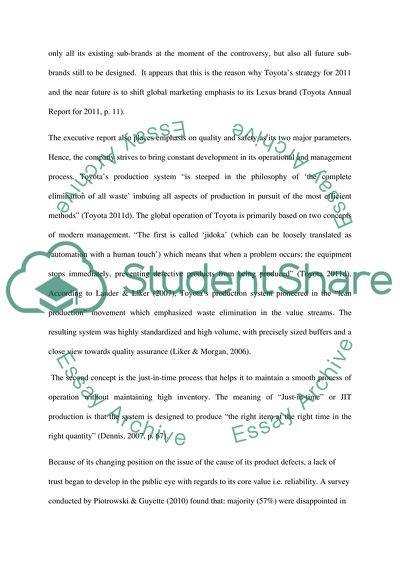PRODUCT RECALL AND BRAND STRATEGY A Case Study on Toyota Corporation Essay. Retrieved from https://studentshare.org/marketing/1588369-product-recall-and-brand-strategy-a-case-study-on-toyota-corporation
PRODUCT RECALL AND BRAND STRATEGY A Case Study on Toyota Corporation Essay. https://studentshare.org/marketing/1588369-product-recall-and-brand-strategy-a-case-study-on-toyota-corporation.


